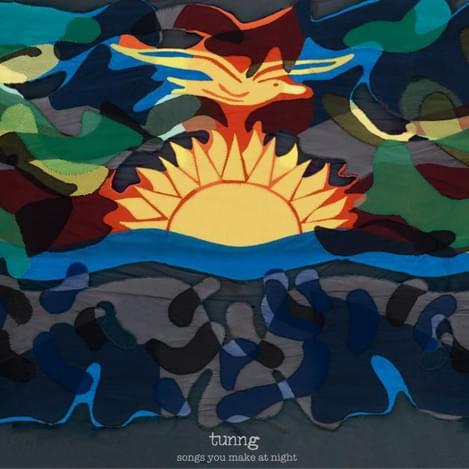Tunng emerge gently from that good night with a solid comeback LP
"Songs You Make at Night"

Or rather, to rephrase that; is the time of day that they were penned and recorded at the important thing amongst all of this? After all, the elder statesmen (and women) of folktronica’s last album, Turbines, is now thoroughly in the rear view mirror, to the tune of five full years. The two figureheads of the London group, Mike Lindsay and Sam Genders, appear to have gone their own way down either side of the creative fork in the road that Turbines represented.
Lindsay moved to Reykjavik, ruling himself out of impromptu band practices in the process, only to dramatically re-announce himself on the capital’s scene earlier this year with LUMP, his stellar collaboration with Laura Marling that would surely have given the Mercy Prize judges a great deal to think about if only the resulting recording had been long enough to actually be considered an album. For Genders’ part, he set up his own outpost, Diagrams, a band with a revolving door policy.
The point is that the fact that Tunng have been able to find the time and nail the logistics is perhaps more crucial than whether these songs were pieced together during morning, noon or evening; Genders and Lindsay would surely agree that the proof is in the pudding with this sixth studio effort. Immediately striking is how comfortably the pair seem to have settled back into the old dynamic; the last couple of Tunng records wore their appreciation for sumptuous production methods well and truly on their sleeves, and that’s an aesthetic that’s straight back to the fore on Songs You Make at Night. Opener "Dream In" wastes little time in establishing the atmospherics; there’s beds of undulating synths, overlapping, hushed vocals, flickers of erratic electronics, and then, as it draws to a conclusion, snatches of a sampled voice - “wake up”.
Elsewhere, there’s plenty of evidence of a tasteful shuffling of the sonic palette. "Abop" brings in some subtly noisy loops at the same time as it stacks numerous vocal lines on top of each other, whilst ‘Dark Heart’ could easily pass for a tasteful remix of one of Blondie’s lower-key eighties cuts. "Flatland", meanwhile, cannot be pinned down by time signature; suddenly, at the album’s midpoint, there’s genuine uncertainty as the track shuffles along esoterically. Beneath it all is the naggingly haunting contribution of vocalist Becky Jacobs; she’s barely there the whole time, but enough to get under the skin of the listener.
There are, of course, solid reasons as to why Tunng have always been a cult outfit; deliberate weirdness, detractors might suggest, is one part of it, with the dated nature of the very idea of folktronica another. Both, even if only sporadically, rear their heads on Songs You Make at Night. It’s not especially clear why the various synth layers need to overlap quite as awkwardly as they do on "Nobody Here", and at the same time, there’s "Crow", which is almost too mellow, killing the momentum that the LP’s first three songs had so carefully constructed. ‘Like Water’ is the penultimate track, and by then, you might be forgiven for feeling as if Songs You Make at Night is beginning to sound like much of a muchness.
Still, Lindsay and Genders are singular talents, and to have them back is no bad thing. For them to have eased so smoothly into the Tunng saddle is a bonus again - what they need to do now is to figure out where the evolution comes, in order to ensure that this always-daring band remain vital well into the future.
Get the Best Fit take on the week in music direct to your inbox every Friday

Bon Iver
SABLE, fABLE

Mamalarky
Hex Key

Florist
Jellywish





